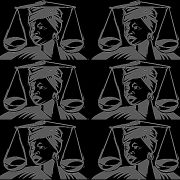|
Getting your Trinity Audio player ready...
|
By Thato Mahlangu
Two former National Prosecuting Authority (NPA) bosses won’t be making a comeback to the state prosecuting agency.
Nomgcobo Jiba, who was removed as deputy national director of public prosecutions and Lawrence Mrwebi, the then special director of public prosecutions, will not be reinstated to their old positions. President Cyril Ramaphosa suspended Jiba and Mrwebi in October 2018 and dismissed them in April 2019, following the Mokgoro Commission, which determined that neither were fit and proper to occupy their high offices. In September 2016 Jiba and Mrwebi were struck off the roll of advocates.
On Wednesday 27 November 2019 the parliamentary portfolio committee on justice and correctional services announced that it would recommend that the National Assembly resolve not to restore Jiba and Mrwebi to their previous positions.
Both were found to have engaged in activities that undermined the rule of law, that grossly impeded the functioning of the NPA and that were responsible for destroying public trust in an institution intended to be a pillar of the criminal justice system.
This comes after Jiba took the matter to the Western Cape High Court this year. On Friday, 18 October 2019, the court’s decision was to deny Jiba’s application for reinstatement pending the review that she has initiated of the findings of the Mokgoro Commission.
News24 had previously reported that Jiba had asked the court to order Ramaphosa and the national director of public prosecutions (NDPP) Shamila Batohi to reinstate her “with all associated employment benefits with immediate effect”.
The court dismissed Jiba’s application to be reappointed at the NPA, with costs.
In a statement, the committee chairperson Bulelani Magwanishe said that in respect of Jiba and Mrwebi, the committee found no reason for them to be restored to their previous positions.
President’s decision was fair
It also found that President Cyril Ramaphosa’s decision to fire Jiba and Mrwebi, based on the Mokgoro Commission’s findings, was fair.
“The committee found that the President complied with the provisions of section 12(6)(a) and (b) of the National Prosecuting Authority Act. In addition, the process the President followed in reaching his decision was fair and he applied his mind properly on the matter.”
The committee said it was of the view that the representations placed before it by Mrwebi did not raise any reason for it to find that the president did not apply his mind properly to the matter.
“[We are] of the view that the documents and representations before it [the enquiry] do not present any reason for it to find that the process followed was unfair,” the committee stated.
Parliament’s role in the process
Rajaa Azzakani, media officer for the justice and correctional services committee, told us Parliament’s role in this process is that, within 30 days of Ramaphosa’s April 2019 message dismissing the two being tabled in Parliament or as soon thereafter as is reasonably possible, it must pass a resolution on whether or not to recommend the restoration to office of the national director or deputy national director so removed.
“The Act further states that the president shall restore the national director or deputy national director to his or her office if Parliament so resolves,” Azzakani said.
Jiba and Mrwebi given opportunities to state their cases
Magwanishe said the committee has done due diligence in this matter.
“Both Jiba and Mrwebi were given an opportunity to make representations to the committee. Mrwebi took the opportunity. Jiba turned to the courts to stop our process. After the courts rejected her application, she informed the committee that she will not continue with the process, as she wants to move on with her life.”
He said the committee did everything in its power to afford all parties a fair opportunity to state their cases.
“Based on the process we followed and reports and representations considered, we are of the view that neither should be restored to office,” Magwanishe said.
Our involvement in NPA’s murky leadership matters
An application by Corruption Watch (CW) and Freedom Under Law and the Council for Advancement of the South African Constitution resulted in the removal of the then NDPP Mxolisi Nxasana being announced as invalid.
Judge Dunstan Mlambo in the Pretoria High Court said in his December 2017 judgment the settlement agreement that led to the removal of Nxasana was indeed unlawful and that the termination of Nxasana’s appointment was invalid and set aside.
The settlement amounted to more than R17 -million.
CW commented on 8 December 2017 that the judgment also confirmed that the subsequent appointment by former president Jacob Zuma of Shaun Abrahams as NPA head was also invalid and therefore should be set aside. Section 10 of the NPA Act states that the president must appoint the head of the NPA.
“In addition, the court found for CW in deciding that, arising out of his manifest conflicts of interest, the president may not appoint, suspend or remove the NDPP. Accordingly, the court has decided that the appointment to the now vacant post of NDPP is the responsibility of the deputy president.”







